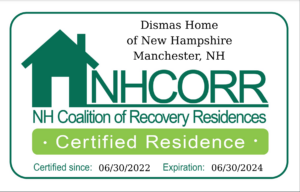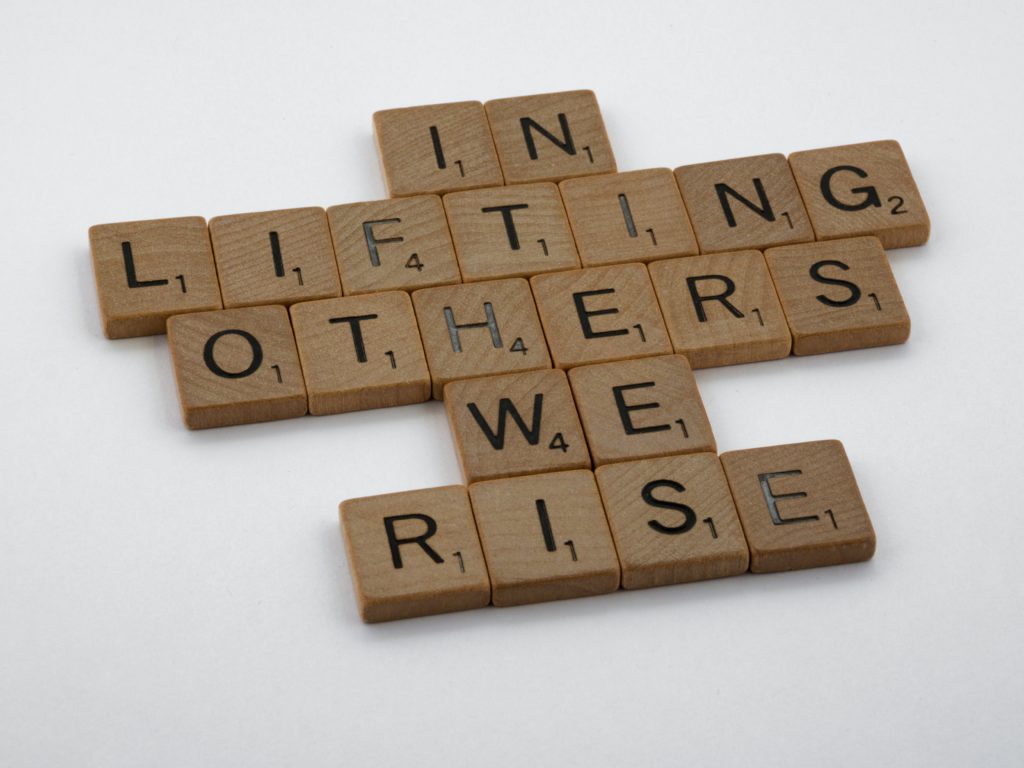“The first time I felt safe in 20 years”
Laurel’s Story
In this series, we’ll share real stories of how women have found hope, courage, and a path forward at Dismas Home of New Hampshire. Today, we’re sharing Laurel’s story.
Like so many of the women who come to Dismas, this hadn’t been the first time that Laurel had struggled with substance use and the justice system. It was a cycle that she had tried to break out of, but with little success. But this time was different. She was ready to try something new.
“At 51 years old, I knew I needed something to give me a good foundation so I could eventually live on my own,” said Laurel. “I didn’t want a 28 day program – I knew I needed more than that.”
She heard about Dismas Home and brought it up with her case manager. They worked on applying for residence, and Laurel was grateful to discover that she was accepted.
And for the first time in 20 years, Laurel finally felt safe. She admits that she was anxious before moving in – how would she get along with the other women? How would she handle her social anxiety? Her stomach was in knots as the first day approached.
From the moment that Laurel walked in the door, the staff and other women made sure Laurel felt comfortable. “I couldn’t believe the warmth from everyone. I felt safe and part of a family here.”
It turns out that the 9 month program was exactly what Laurel needed to rest, regain her health, and process her past experiences with the help and guidance of the dedicated clinicians and staff at DISMAS Home.
During the meetings every week, the women move through the program and curriculum, but are also supported in all areas of life. Whether it’s facilitating phone calls to relatives, managing medication and doctors appointments, guiding job searches, or even navigating interpersonal relationships, the staff is trained to guide with a gentle and professional hand.
Laurel loves to cook, and used meal preparation as a way to interact with the other women and manage her social anxiety. In the past, Laurel would isolate herself when her anxiety kicked in. Here at Dismas, the kitchen was her connection to the community.
“It’s so wonderful here that I don’t want to isolate myself. I want to see how everyone’s doing. I go down and cook a lot for the girls. If I cook for myself, I’ll just eat junk food. But when I cook for others, it will be a great (and healthy) meal.”
The staff and clinicians encourage a variety of proven modalities to help the women through their recovery process. Laurel was particularly looking forward to trying out EMDR (Eye Movement Desensitization and Reprocessing), which she had read about. She also leans into expressing her creativity through arts and crafts, and staying productive.
“They don’t let you get stuck in a rut,” Laurel said, “They will find a way to help you make it through. It helps to have them push us – and it feels good to get all these things accomplished.”
Some of the staff at Dismas Home have been through their own recovery journey, and provided Laurel with role models and beacons of hope. After hearing the other women’ s success stories, Laurel realized “I can do this.” It was so powerful to have staff members that had actually walked in Laurel’s shoes.
In fact, Laurel recently celebrated 18 months of sobriety, supported by the staff and the women of Dismas Home. She was overwhelmed by the love and celebration from her housemates.
“We are so blessed with the group of women we have here now,” said Laurel. “We look out for each other. I’m so glad to come to a safe place like this. It just clicked with me and changed the way I thought about everything.”
Quick Links
Contact Us
- 603-782-3004
- [email protected]
- Manchester, NH 03102
The preparation of this (report, document, etc.) was financed under a Contract with the State of New Hampshire, Department of Health and Human Services, with funds provided in part by the State of New Hampshire and/or such other funding sources as were available or required, e.g. the United States Department of Health and Human Services.




